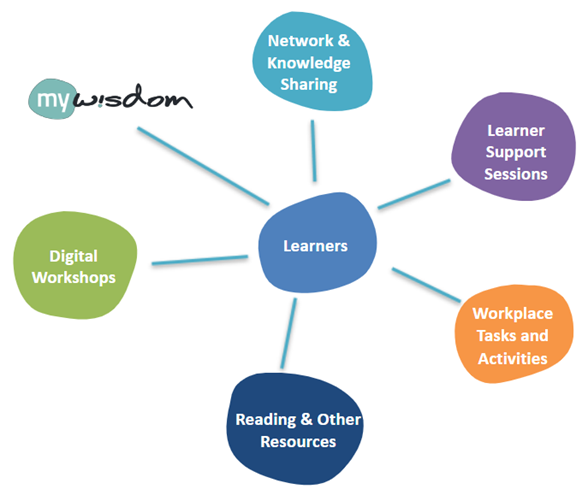The Fraud and Investigation Training (PSP40416 Certificate IV in Government Investigations) is current and contemporary to the dynamic and complex environment of modern investigative practice. This program is designed to upskill and provide investigators with a deep understanding of their complex work environment. It will allow them to adapt, understand and respond to government policy and emerging trends as well as prepare them for changes to their current operating environment. The program will also equip investigators with the skills and knowledge to contribute more effectively to joint agency taskforces and investigations.
The program will upskill investigators across key development areas including:
The Fraud and Investigation Training (PSP40416 Certificate IV in Government Investigations) will provide investigators with the opportunity to:
This program will develop contemporary investigators with the capability in four key areas:

The Fraud and Investigation Training (PSP40416 Certificate IV in Government Investigations) is facilitated in 4 blocks consisting of fortnightly digital workshop sessions via MS Teams. Participants will be expected to engage in study and workplace activities in addition to the facilitated workshops to complete the requirements of the qualification.
Assessments will need to be completed during each block – some in workshop time, some in your own time, as negotiated with your supervisor.
It is critical that participants are available to participate in all elements of the program.
Recognition of existing qualifications & Prior Learning
Any requests for recognition of prior learning will need to be directed to the program facilitator for review.
The Fraud and Investigations Training will apply accelerated learning techniques using the Wisdom Way Learning Model, represented in the diagram below.

The Wisdom Way learning model includes:
Digital Workshops: Interactive facilitator led sessions (not e-learning) that enables structured learning of key program content. Digital workshops recreate the face-to-face Wisdom learning experience using a range of facilitation techniques and engagement tools. Digital platforms will also be used to engage participants at regular intervals throughout the program in informal and formal workshops. All digital workshops will be conducted using MS Teams.
Learning Support Sessions: Facilitator led sessions throughout the program which can be tailored to the needs of the participants. These sessions can be used to support assessment tasks, clarify information covered during the workshops, introduce topical issues that arise between workshops or engage in discussion with the participants on topics of their choice relating to the program. Break-out rooms will provide an opportunity for participants to engage with a facilitator one on one if required or for small groups who want assistance to engage with the facilitator.
myWisdom: The myWisdom online learning space provides participants with the opportunity to access resources, complete/upload assessment tasks, undertake learning activities, collaborate and reflect throughout the duration of the program.
Networking & knowledge sharing: Participants in the program will enhance learning through sharing knowledge, experience and resources within and outside the workshops. Participants will be encouraged and supported to network outside of the classroom to augment learning and knowledge sharing and the development of sustainable networks and collaborative professional relationships.
Readings & other resources: Participants will be provided with resources that underpin learning and provide the depth and breadth of the program’s content. Readings and resources will reflect contemporary theories, models, best practice guidelines and leading practice.
Workplace tasks & activities: Participants will undertake a range of practical tasks and activities relevant to their own workplace. These tasks and activities will form many of the assessment requirements for the program.
This program includes assessment and learning activities built into all workshops and your contributions during workshops will directly impact on your assessment. This is because direct observation will be one kind of evidence gathered in support of your competencies. For this reason, non-attendance or partial attendance, may require that additional assessment activities be completed in order that competency requirements are met.
Working with others and assisting them as a member of a group is one way of demonstrating some of the required skills and knowledge for this program. We urge you to take opportunities to demonstrate your competency; constructive communication and collaboration is part of what is being assessed in this program.
Most assessments in this program will be submitted individually. Where the assessment is to be completed in a group context, detailed instructions on the formation of the group, the number of participants in the group and the roles and responsibilities for group members will be recorded on the assessment task, where necessary, and/or according to the guidelines stipulated by the trainer/assessor.
Assessment of group work and participant collaboration will reflect an appropriate depth and breadth and be typically observed by an assessor and may be accompanied by a signed statement that all members of the group contributed to completion of the assessment.
Wisdom will provide a range of learning resources for use during and between of the workshops. Resources typically include, but are not limited to:
This program will involve a range of assessment methods and approaches in response to your individual and organisational learning requirements, involving core assessments as part of the relevant units of competency; additional tasks and exercises. During this program you will undertake assessment of some Units of Competency individually, and some will be clustered.
Your facilitator/s will provide you with detailed individual assessment tasks throughout the program. These tasks will contain detailed instructions and information on the assessment process and the range and conditions of the assessment.
While this process can evolve in response to your achievements, assessment requirements will be transparent, and participants will be guided through activities in a manner that upholds the normal principles of assessment and evidence rules.
Due dates will be determined in a transparent, supportive manner to ensure you are given the opportunity to complete the program work in the best possible and most constructive learning setting.
The program has been designed to meet the needs of all investigative areas and includes the following fifteen units of competency:
Core Units
PSPETH002 Uphold and support the values and principles of public service
PSPINV001 Plan and initiate an investigation
PSPINV004 Conduct an investigation
PSPREG012 Gather information through interviews
PSPREG003 Apply regulatory powers
PSPINV003 Finalise an investigation
Elective Units
BSBWHS211 Contribute to health and safety of self and others
PSPREG004 Promote client compliance
PSPREG005 Assess compliance
PSPREG006 Produce formal record of interview
PSPREG008 Act on non-compliance
PSPREG013 Undertake inspections and monitoring
PSPREG042 Receive and validate data
BSBCRT411 Apply critical thinking to work practices
BSBPEF502 Develop and use emotional intelligence
Upon successful completion of the program by meeting the assessment requirements for above competencies, Wisdom Learning will issue participants with a nationally recognised qualification for the PSP40416 Certificate IV in Government Investigations.

Are you part of an organisation that is committed to developing its people? Would you like to partner with one of Australia’s leading training providers? Would you like to work with a training partner that understands your business and can develop capabilities to solve business problems?